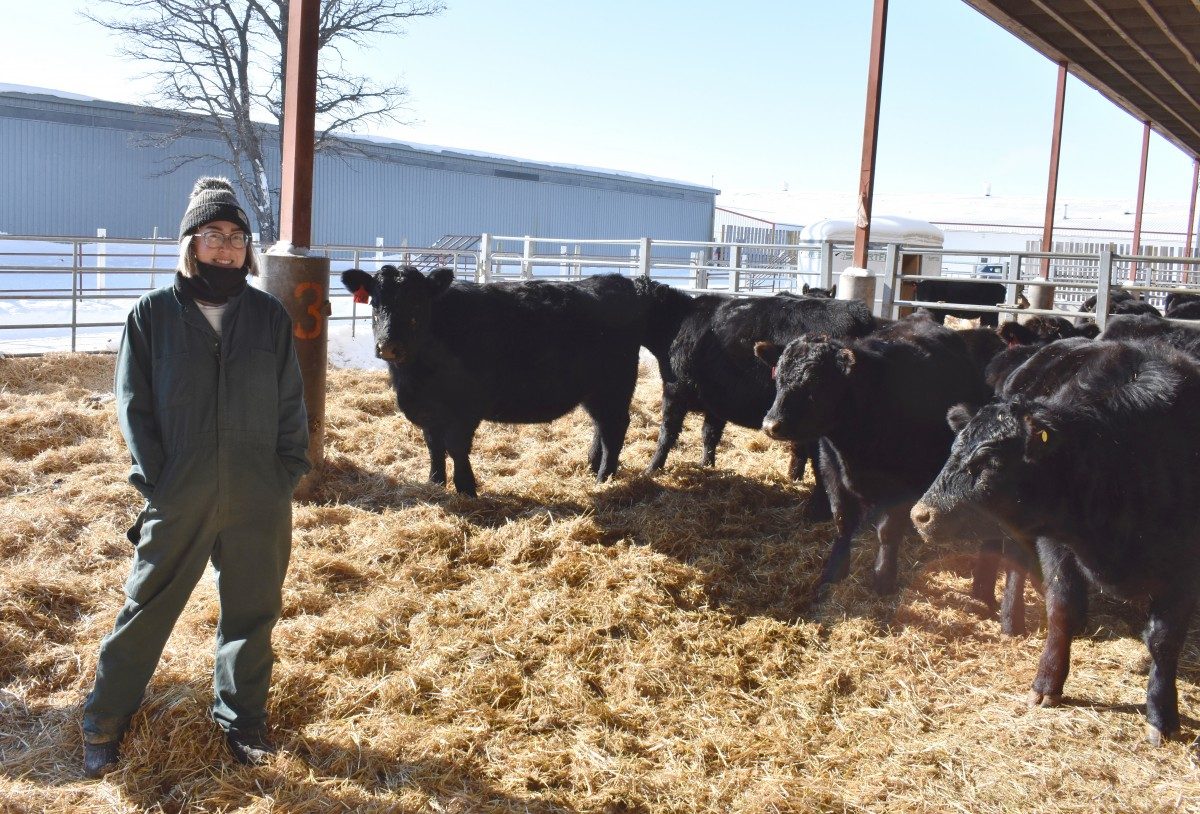
Q&A with graduate student Rhea Teranishi
Currently, there are approximately 30,000 students enrolled at the University of Manitoba including the roughly 4,000 students in graduate programs. Each student offers a unique perspective and has varying academic experiences, passions, and pursuits. Over the upcoming weeks, the Faculty of Agricultural and Food Sciences will be doing a short Q&A series with students pursuing graduate studies within the Faculty.
 Rhea Teranishi
Rhea Teranishi
M.Sc. student in Animal Science with the National Centre for Livestock and the Environment
Advisors: Dr. Kim Ominski and Dr. Emma McGeough
Where are you from?
Winnipeg, Manitoba
Where did you complete your undergrad degree and what was it in?
I graduated from the University of Manitoba’s Faculty of Agricultural and Food Sciences with a Bachelor of Science in Agriculture majoring in Animal Systems.
What is your current research?
My research is focused on finding new dietary methane mitigation strategies for the cow-calf production system. Currently, cow-calf operations primarily consist of grazed forage and have limited opportunities to provide dietary additives in order to decrease methane emissions while more complex feedlot diets, which are fed in confinement as a mixed ration, are easier to incorporate supplements with emission reduction potential. Also, high forage diet reduction strategies are often one-dimensional and emission reductions are relatively small. In my research, I’ll be using several dietary mitigation strategies that utilize different mitigation mechanisms which could possibly lead to an additive with a negative effect on methane emissions.
What was your initial interest in animal science?
Entering university, I originally planned on applying to veterinary school in Saskatchewan and debated between pursuing a degree through the Faculty of Science or the Faculty of Agricultural and Food Sciences, but I ultimately chose agriculture. After the first two years of my undergrad, I decided that I didn’t want to become a veterinarian and started to work towards completing my Animal Systems degree. In my last years of undergrad, I worked for Dr. Ominski and Dr. McGeough on their research projects as a summer student. Because of it, I became familiar with their research which is what piqued my interest in applying to become a Master’s student in the department.
What are you hoping this research will achieve and how will it help us?
I hope that new and effective strategies that decrease cattle methane emissions come out of my research and that I can contribute to the growing body of research dedicated to reducing greenhouse gas emissions from the animal agriculture industry.
What’s the coolest thing you’ve done or learned?
The coolest thing that I’ve done is definitely put a methane halter on a cow to measure the amount of methane that they emit. I also love learning about the animal’s behaviour; every time we move the animals into our handling facility at the Glenlea Research Station, I learn something new about how to properly work with them so it’s safe for everyone and what to do in certain situations.
Working with animals can at times be unpredictable, have you had any unforgettable moments happen while doing research?
I can’t think of a particular moment. Luckily, the cattle I work with have a very calm deposition which makes it easier to work with them. What I find most interesting is working with animals on a weekly basis because you can really see their personalities come out.
When you were a kid what did you see yourself doing as a career?
Anything that involved working with animals which is why I originally wanted to be a veterinarian. Going through my undergrad and working through my Master’s, I realize that I have a lot of opportunities to work with animals.






